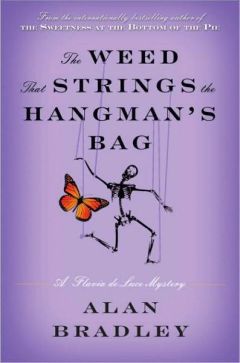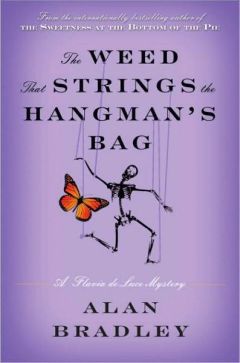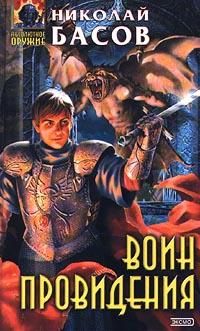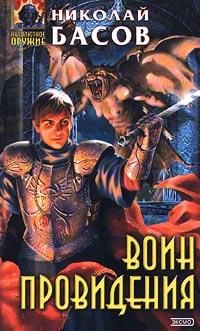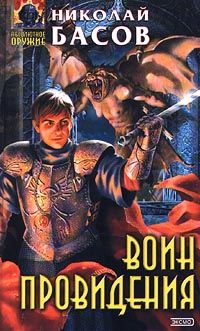Alan Bradley - A Red Herring Without Mustard: A Flavia de Luce Novel
“I was one of those fools,” I told her.
“Yes,” Porcelain said. She was not going to spare my feelings.
“Did you travel with them?” I asked.
“Once or twice when I was younger. Lunita didn’t much like me being with them.”
“Lunita?”
“My mother. She was their only child. Gypsies like large families, you know, but she was all they had. Their hearts were broken in half when she ran off with a Gajo—an Englishman from Tunbridge Wells.”
“Your father?”
Porcelain nodded sadly. “She used to tell me my father was a prince—that he rode on the back of a pure white horse that was faster than the wind. His jacket was of spun gold and his sleeves of finest silk. He could talk to the birds in their own language and make himself invisible whenever the fancy took him.
“Some of that was true—he was specially good at the invisible dodge.”
As Porcelain spoke, there appeared in my mind a thought as sudden and as uninvited as a shooting star in the night sky: Would I trade my father for hers?
I brushed it away.
“Tell me about your mother,” I said, perhaps a little too eagerly.
“There’s little enough to tell. She was on her own. She couldn’t go home, if you can call it that, because Fenella and Johnny—mostly Fenella—wouldn’t have her. She’d me to care for, and she hadn’t a friend in the world.”
“How awful,” I said. “How did she manage?”
“By doing the only thing she knew. She had the gift of the cards, so she told fortunes. Sometimes, when things got bad, she would send me to Fenella and Johnny for a while. They cared for me well enough, but when I was with them they never asked about Lunita.”
“And you never told them.”
“No. But when the war came, things were different. We’d been living in a frightful old bed-sitter in Moorgate, where Lunita told fortunes behind a bedsheet strung up across the room. I was only four at the time, so I don’t remember much about it in those days, apart from a spider that lived in a hole in the bathroom wall.
“We’d been there for, oh, I think about four years, so I must have been eight when one day a sign went up in the window of the empty house next door, and the landlady told Lunita that the place was being turned into a servicemen’s club.
“Suddenly she was making more money than she knew what to do with. I think she felt guilty about all the Canadians, the Americans, the New Zealanders, and the Australians—even the Poles—that came flocking in their uniforms to our rooms to have their cards turned. She didn’t want anyone to think she was profiting by the war.
“I’ll never forget the day I found her weeping in the W.C. ‘Those poor boys!’ I remember her sobbing. ‘They all ask the same question: Will I go home alive?’ ”
“And what did she tell them?”
“ ‘You will go home in greater glory than ever you came.’ She told them all the same, every one of them: half-a-crown a time.”
“That’s very sad,” I said.
“Sad? No, not sad. Those were the best days of our lives. We just didn’t realize it at the time.
“There was one particular officer that was always hanging round the club: tall bloke with a little blond mustache. I used to see him in the street, coming and going. Never had much to say, but he always seemed to be keeping an eye out for something. One day, just for a lark, Lunita invited him in and told his fortune. Wouldn’t take a penny for it because it happened to be a Sunday.
“Within a day or two she was working for MI-something. They wouldn’t tell her what, but it seemed that whatever she’d seen in his cards, she’d hit the nail on the head.
“Some boffin in Whitehall was trying to work out what Hitler’s next move was going to be, and he’d heard through the grapevine about the Gypsy who spread the cards in Moorgate.
“They invited Lunita straightaway to lunch at the Savoy. At first, it might have been no more than a game. Maybe they wanted word to get about that they were desperate enough to pin their hopes on a Gypsy.
“But again, the things she told them were so close to the top-secret truth that they couldn’t believe their ears. They’d never heard anything like it.
“At first, they thought she was a spy, and they had a scientist from Bletchley Park come up to London to interrogate her. He was hardly through the door before she told him he was lucky to be alive: that an illness had saved his life.
“And it was true. He’d just been attached to the Americans as a liaison officer when a sudden attack of appendicitis had kept him from taking part in a rehearsal for D-day—Exercise Tiger, it was called. The thing had been badly botched—hundreds killed. It was all hushed up, of course. Nobody knew about it at the time.
“Needless to say, the bloke was flabbergasted. She passed the test with flying colors, and within days—within hours—they had us set up in our own posh flat in Bloomsbury.”
“She must have remarkable powers,” I said.
Porcelain’s body went slack. “Had,” she said flatly. “She died a month later. A V1 rocket in the street outside the Air Ministry. Six years ago. In June.”
“I’m sorry,” I said, and I was. At last we had something in common, Porcelain and I, even if it was no more than a mother who had died too young and left us to grow up on our own.
How I longed to tell her about Harriet—but somehow I could not. The grief in the room belonged to Porcelain, and I realized, almost at once, that it would be selfish to rob her of it in any way.
I set about cleaning up the shattered glass from the test tube she had dropped.
“Here,” she said. “I should be doing that.”
“It’s all right,” I told her. “I’m used to it.”
It was one of those made-up excuses that I generally despise, but how could I tell her the truth: that I was unwilling to share with anyone the picking up of the pieces.
Was this a fleeting glimpse of being a woman? I wondered.
I hoped it was … and also that it was not.
We were sitting on my bed, Porcelain with her back against the head, and I cross-legged at the foot.
“I expect you’ll be wanting to visit your gram,” I said.
Porcelain shrugged, and I think I understood her.
“The police don’t know you’re here yet. I suppose we’d better tell them.”
“I suppose.”
“Let’s leave it till the morning,” I told her. “I’m too tired to think.”
And it was true: My eyelids felt as if they had been hung with lead sinkers. I was simply too exhausted to deal with the problems at hand. The greatest of these would be to keep secret Porcelain’s presence in the house. The last thing I needed was to look on helplessly as Father drove away the granddaughter of Fenella and Johnny Faa.
Fenella was in hospital in Hinley and, for all I knew, she might be dead by now. If I was to get to the bottom of the attack upon her at the Palings—and, I suspected, the murder of Brookie Harewood—I would have to attract as little attention as possible.
It was only a matter of time before Inspector Hewitt would be at the door, demanding details about how I had discovered Brookie’s body. I needed time to review which facts I would tell him and which I would not. Or did I?
My mind was a whirl. Heigh-ho! I thought. What jolly sport is the world of Flavia de Luce.
Next thing I knew it was morning, and sunlight was pouring in through the windows.
THIRTEEN
I ROLLED OVER AND blinked. I had been sprawled across the bottom of the bed, my head twisted painfully against the footboard. At the top of the bed, Porcelain was tucked in with my blanket pulled over her shoulders, her head on my pillow, sleeping away for all she was worth like some Oriental princess.
For a moment I felt my resentment rising, but when I remembered the tale she had told me last night, I let the resentment melt into pity.
I glanced at the clock and saw, to my horror, that I had overslept. I was late for breakfast. Father insisted that dishes at the table arrive and be taken away with military precision.
Taking great care not to awaken Porcelain, I made a quick change of clothing, took a swipe at my hair with a brush, and crept down to breakfast.
Father, as usual, was immersed in the latest number of The London Philatelist, and seemed hardly to notice my arrival: a sure sign that another philatelic auction was about to take place. If our financial condition was as precarious as he claimed, he’d need to be sharp about current prices. As he ate, he made little notes on a napkin with the stub of a pencil, his mind in another world.
As I slipped into my chair, Feely fixed me with the cold and stony stare she had perfected by watching Queen Mary in the newsreels.
“You have a pimple on your face,” I said matter-of-factly as I poured milk on my Weetabix.
She pretended she didn’t hear me, but less than a minute later I was gratified to see her hand rise automatically to her cheek and begin its exploration. It was like watching a crab crawl slowly across the seabed in one of the full-colored short subjects at the cinema: The Living Ocean, or something like that.
“Careful, Feely!” I said. “It’s going to explode.”
Daffy looked up from her book—the copy of A Looking Glasse, for London and Englande I had found at the fête. She’d picked it up herself, the swine!
I made a note to steal it later.
“What does it mean where it says ‘a red herring without mustard’?” I asked, pointing.
Daffy loved the slightest opportunity to show off her superior knowledge.
I had already reviewed in my mind what I knew about mustard, which was precious little. I knew, for instance, that it contained, among other things, the acids oleic, erucic, behenic, and stearic. I knew that stearic acid was found in beef and mutton suet because I had once subjected one of Mrs. Mullet’s greasy Sunday roasts to chemical analysis, and I had looked up the fact that erucic acid gets its name from the Greek word meaning “to vomit.”
“Red herring, in the sixteenth and seventeenth centuries, was considered an inferior dish,” Daffy replied, with an especially withering look at me on the word “inferior.”
I glanced over at Father to see if he was looking, but he wasn’t.
“Nicholas Breton called it ‘a good gross dish for a coarse stomach,’ ” she went on, squirming and preening in her chair. “He also said that old ling—that’s another fish, in case you don’t know—is like ‘a blew coat without caugnisaunce,’ which means a servant who doesn’t wear his master’s badge of arms.”
“Daphne, please …” Father said, without looking up, and she subsided.
I knew that they were referring—over my head, they thought—to Dogger. Warfare at Buckshaw was like that: invisible and sometimes silent.
“Pass the toast, please,” Daffy said, as quietly and politely as if she were addressing a stranger in an A.B.C. tea shop: as if the last eleven years of my life hadn’t happened.
“They’re having a new badminton court at Fosters’,” Feely remarked suddenly to no one in particular. “Sheila’s going to use the old one to park her Daimler.”
Father grunted, but I could tell he was no longer listening.
“She’s such a saucy stick,” Feely went on. “She had Copley bring out little dishes of dessert onto the south lawn, but instead of ices she served snails—escargots! We ate them raw, like oysters, as the cinema stars do. It was ever so amusing.”
“You’d better be careful,” I said. “The snail gatherers sometimes pick up leeches by mistake. If you swallow a leech, it will eat its way out of your stomach from the inside.”
Feely’s face drained slowly, like a washbasin.
“There was something in The Hinley Chronicle,” I added helpfully, “three weeks ago, if I remember correctly, about a man from St. Elfrieda’s—not that far from here, really—who swallowed a leech and they had to—”
But Feely had scraped back her chair and fled.
“Are you provoking your sister again, Flavia,” Father asked, looking up from his journal, but leaving a forefinger on the page to mark his place.
“I was trying to discuss current events,” I said. “But she doesn’t seem much interested.”
“Ah,” Father said, and went back to reading about plate flaws in the 1840 tuppenny blue.
With Father present at the table, we were at least semi-civilized.
I made my escape with surprisingly little difficulty.
Mrs. Mullet was in the kitchen torturing the corpse of a chicken with a ball of butcher’s twine.
“No good roastin’ ’em ’less you truss properly,” she said. “That’s what Mrs. Chadwick up at Norton Old Hall used to tell me, and she ought to know. She was the one that learned me—mind you that was back in the days of Lady Rex-Wells, long before you was born, dear. ‘Truss ’em up three-times-three,’ she used to say, ‘and you’ll never have to rake out your oven.’ What are you laughin’ at, miss?”
A nervous titter had escaped me as a sudden image—of being tied up in a similar way by my own flesh and blood—had flashed across my mind.
The very thought of it reminded me that I had not yet taken my revenge. Certainly, there had been my little leech joke, but that was a mere warm-up: no more than a prelude to vengeance. The fact was that I had simply been too busy.
As Mrs. M slid the doomed bird into the maw of the open Aga, I took the opportunity to pinch a pot of strawberry jam from the pantry.
“Three-times-three,” I said with an awful grimace and a horrid wink at Mrs. Mullet, as if I were giving the password of a secret society—one in which she and I were the only members. At the same time, I gave her a Winston Churchill “V for Victory” sign with my right hand, to divert attention from the jam jar in my left.
Safely back upstairs, I opened the bedroom door as quietly as possible. There was no need to disturb Porcelain. I would leave a note telling her that I’d be back later, and that was all. No need to say where I was going.
But no note was necessary: The bed was perfectly made and Porcelain was gone.
Confound her! I thought. Hadn’t she understood that she was to keep to my room and out of sight? I thought I had made that perfectly clear, but perhaps I hadn’t.
Where was she now? Wandering the halls of Buckshaw—where she would surely be caught? Or had she returned to the caravan in the Palings?
I’d been intending to accompany her to the police station in Bishop’s Lacey so that she could make her presence known to Constable Linnet. By being on the spot, I’d be not only doing my duty, but putting myself in the perfect position to overhear anything that passed between Porcelain and the police. PC Linnet would, in turn, inform his superiors in Hinley, who would pass the word to Inspector Hewitt. And I’d be the recipient of his grateful thanks.
It could have been so simple. Damn the girl!
